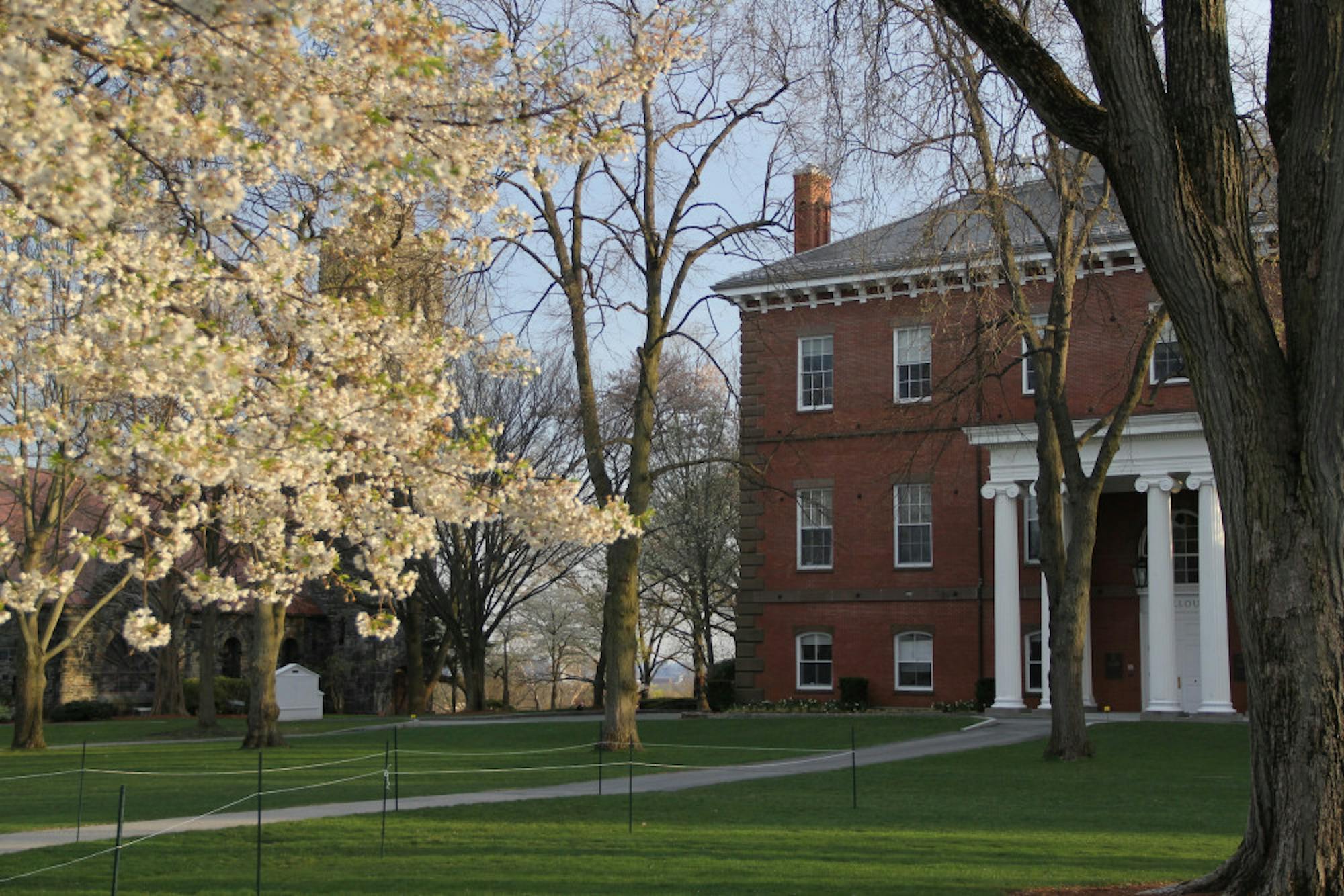Staff and faculty will experience a wage and salary freeze nextyear as the university halts most raises in response to a major budget deficit.
The wage and salary freeze, announced on April 14 in an email to university employees, halts both merit cycle increases and those related to increases in the cost of living, according to Executive Vice President Mike Howard, Tufts’ chief administrative officer. It excludes increases promised by contracts.
Administrators anticipate that the COVID-19 crisis could cause the university to run a deficit of $15 to over $50 million between this fiscal year and the next, depending on how long the public health emergency lasts. Along with the wage and salary freeze, the university also instituted a hiring freeze, suspended spending on capital projects and halted other discretionary spending.
“The COVID-19 pandemic has had a significant negative impact on the university’s budget, as has been the case at other colleges and universities nationwide. In response, it has become necessary to take immediate steps to control costs where possible,” Howard wrote in an email to the Daily.
The last time the university instituted a wage freeze was following the 2008 financial crisis, according to Howard.
The faculty, across many departments, said they are most affected by the freeze.
“Most everyone who teaches and does research anticipates, in normal circumstances, a merit raise,” Bruce Hitchner, chair of the classical studies department, wrote in an email to the Daily.
Both full-time lecturers and part-time lecturers have unionized in recent years, part-time in 2013 and full-time in 2015. Both groups are in the middle of five year contracts. The full-time lecturers’ contract, which was renewed in 2019, stipulates that union members will receive salary increases for fiscal year 2020 “in accordance with University’s Annual Merit Review Program,” but the salary freeze suspends all funds of the merit program.
The part-time faculty’s contract, renewed in 2017, lays out wage increases across all departments through fiscal year 2022.
The wage freeze can be especially difficult considering Boston is a city with a high cost of living and many professors are supporting families at home, according to Department of Biology Chair Catherine Freudenreich.
“It is also a particularly challenging time for faculty with young children who are at home, rather than at school or daycare, and need extra attention,” Freudenreich wrote in an email to the Daily.
Freudenreich said that transitioning to online learning has created more work for faculty, which has not only increased their responsibilities as professors but also cut into the time they usually devote to research.
“The biology faculty all put in a lot of extra hours this spring to switch their classes to online and adjust their courses to work as best as possible for our students,” Freudenrich said. “They will probably also be spending more time this summer working on fall courses, to prepare in case courses have to be taught in a dual manner (both in person and online) this fall.”
While this could make the wage freeze feel like it’s hitting even harder, the general opinion among professors is understanding of the situation and of why the freeze was necessary.
“I sense that most of us accept and understand the decision in the circumstances,” Hitchner said.
Nevertheless, Freudenreich suggested that faculty might be more accepting of the salary freeze if administrators were more involved in the financial sacrifices.
“At Harvard [University], top administrators all agreed to take pay cuts to do their part in managing the financial situation of the university. No word about that at Tufts,” Freudenreich said.
Along with Harvard, administrators at Stanford University, University of Southern California and the University of Oregon have announced that they will take pay cuts to decrease costs over the next fiscal year, according to Inside Higher Ed. Athletic coaches at institutions across the country have followed suit. Thus far, no Tufts administrators have announced they plan to take pay cuts.
Faculty and staff have not yet been asked by the university to take pay cuts, but Howard said he did not rule out the possibility.






